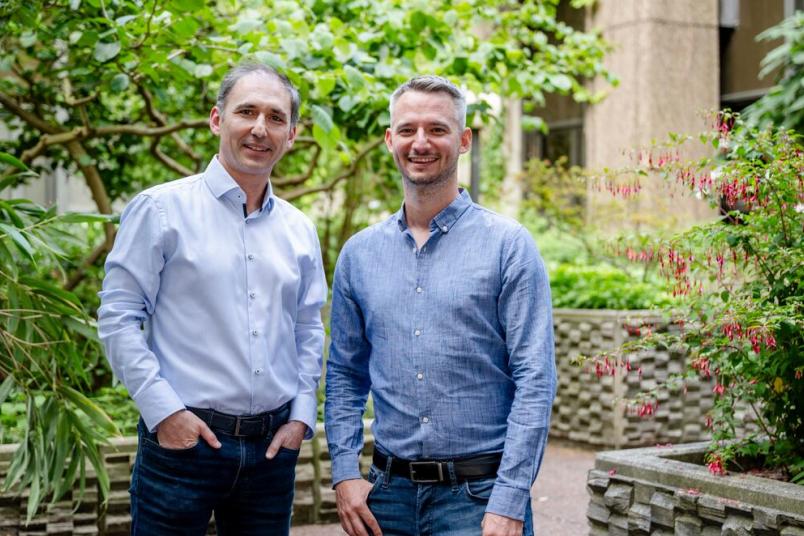
Ilya Ayzenberg (left) and Thomas Grüter want to draw the attention of doctors to the possibility of anti-IgLON disease.
Medicine
Start Immunotherapy for Anti-IgLON5 Disease as Early as Possible
Researchers ask physicians to consider anti-IgLON5 disease if certain symptoms are present, as the only promising approach is early treatment.
It often starts with restless sleep. Mobility, swallowing, and speaking disorders are also typical. Yet a range of other symptoms make it difficult to diagnose anti-IgLON5 disease. Left untreated, this rare autoimmune disease leads to severe disabilities in just a few years and is often fatal. An international observation study with 107 patients showed that immunotherapy should begin as early as possible, and that intravenous administration of immunoglobulins appears to be the most effective treatment. The team under Professor Ilya Ayzenberg and Associate Professor Thomas Grüter from the Neurology Department at the St. Josef Hospital, Ruhr University Bochum, Germany, reports its findings in the journal JAMA Neurology from August 4, 2025.
Anti-IgLON5 disease was first described in 2014 and typically occurs late in life. “The first phase is marked by inflammatory processes in the brain,” explains Grüter. “Immunotherapy during this phase can still have an effect.” The inflammation eventually abates and is followed by the increasing breakdown of nerve cells and fibers. By this point, immunotherapy is usually ineffective.
Involved in the study were 107 patients from around the world whose data were compiled and evaluated across three centers in Germany, the Netherlands, and Spain. The average age at which the patients had been diagnosed with the disease was 64 years. However, only about one third of the patients were diagnosed within one year of the initial symptoms occurring. “This disease is new and rare. Its symptoms are similar to multiple other neurological diseases, such as atypical Parkinson’s disease, bulbar myasthenia gravis, or motor neurone disease. Diagnosis is incredibly difficult but crucial as the disease is easily treatable in its initial stage,” explains Ayzenberg.
Two different immunotherapies
23 percent of the patients observed for the study received immunotherapy during the first year after the disease appeared, and 52 percent only received immunotherapy later. On average, treatment began about two years after the first symptoms occurred. Two different immunotherapies were primarily used: the medication Rituximab and infusions of immunoglobulins.
“Rituximab is often used in rheumatology and targets B-cells that produce certain antibodies,” Grüter explains. Immunoglobulins are based on isolated proteins from donated blood. The superiority of the rather unspecific treatment with immunoglobulins over the targeted antibody therapy with Rituximab was surprising. These results will have to be confirmed by other, ideally prospective studies. Starting treatment with immunoglobulins early certainly seems promising.
The earlier the treatment, the better
“We are appealing to all neurologists to consider anti-IgLON5 disease early on if certain symptoms occur and to test the blood accordingly for antibodies,” says Grüter. “The earlier the diagnosis is made and treatment has begun, the likelier it will be that the disease can be halted.”
If left untreated or treated too late, the disease leads to severe impairments and is often fatal. 40 percent of the patients in the study died during the observation period after five years on average, whereby the cause of death in at least two thirds of those patients was anti-IgLON5 disease.
Call to get involved in registries
“Research on rare diseases can only progress if patients are recorded in the corresponding registries,” Ayzenberg emphasizes. “We thus urgently call for attending physicians to get involved in these registries. For example, in Germany this can be done with the GENERATE network for autoimmune encephalitis.”